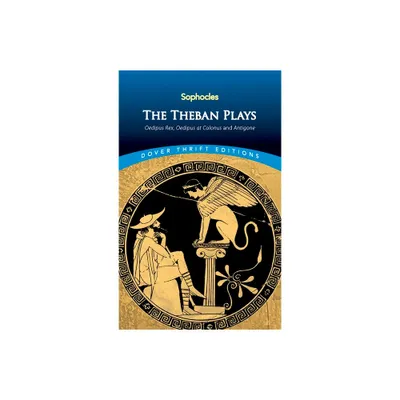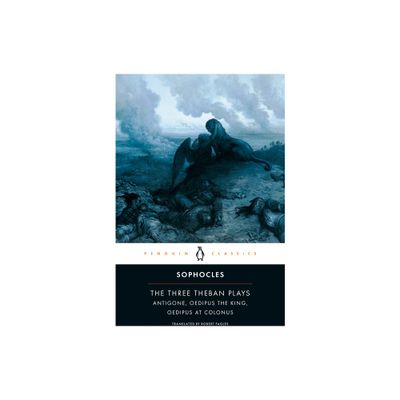Home
The Theban Epics
Loading Inventory...
Barnes and Noble
The Theban Epics
Current price: $22.50


Barnes and Noble
The Theban Epics
Current price: $22.50
Loading Inventory...
Size: OS
*Product Information may vary - to confirm product availability, pricing, and additional information please contact Barnes and Noble
In antiquity, the story of the failed assault of the Seven against Thebes ranked second only to the Trojan War. But whereas the latter was immortalized by Homer’s
Iliad
, the account of the former in the epic
Thebais
survives only in fragments preserved in later authors. The same is true of the
Oedipodeia
and
Epigoni
, which dealt respectively with events leading up to the Seven’s campaign and with the successful assault on the city in the next generation. The
was probably the most important of the three—certainly more and longer fragments of it have survived—and it has been alleged that its recovery would tell us more about Homer than any comparable discovery.
Paradoxically, these fragments suggest very un-Homeric content and style (in particular its detail of the hero Tydeus forfeiting immortality by gnawing on the head of a dying enemy). The same is true of the epic
Alcmaeonis
, named after one of the Epigoni, whose few surviving fragments pullulate with un-Homeric features. Malcolm Davies provides the first full commentary on all four epics’ fragments. He attempts to set them in context and examines whether artistic depictions of the relevant myths can help reconstruct the lost epics’ contents.
Iliad
, the account of the former in the epic
Thebais
survives only in fragments preserved in later authors. The same is true of the
Oedipodeia
and
Epigoni
, which dealt respectively with events leading up to the Seven’s campaign and with the successful assault on the city in the next generation. The
was probably the most important of the three—certainly more and longer fragments of it have survived—and it has been alleged that its recovery would tell us more about Homer than any comparable discovery.
Paradoxically, these fragments suggest very un-Homeric content and style (in particular its detail of the hero Tydeus forfeiting immortality by gnawing on the head of a dying enemy). The same is true of the epic
Alcmaeonis
, named after one of the Epigoni, whose few surviving fragments pullulate with un-Homeric features. Malcolm Davies provides the first full commentary on all four epics’ fragments. He attempts to set them in context and examines whether artistic depictions of the relevant myths can help reconstruct the lost epics’ contents.


















